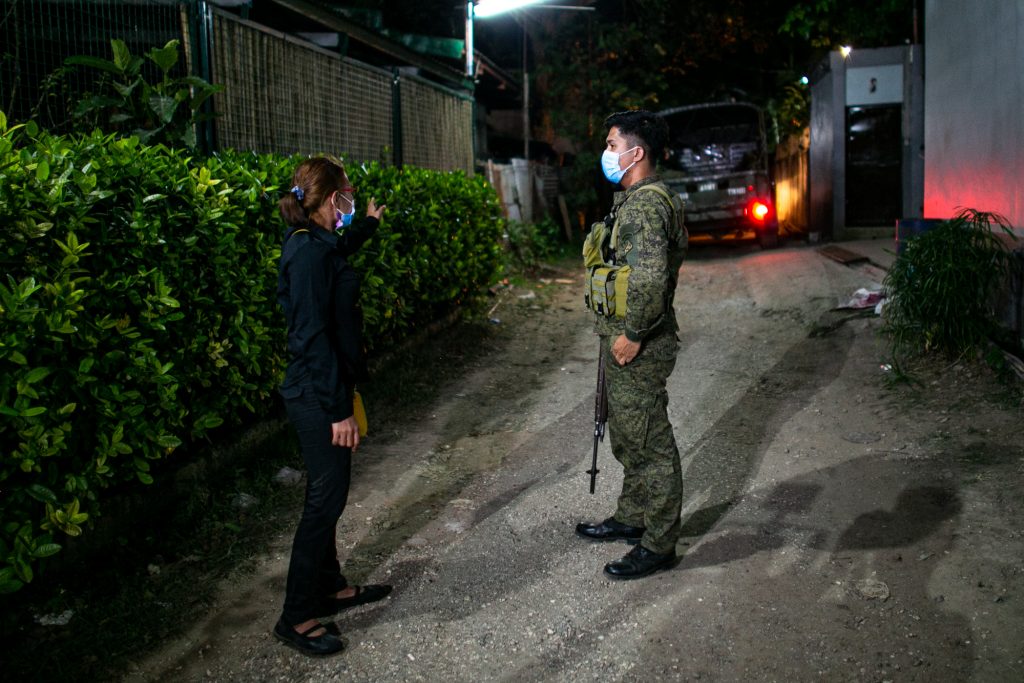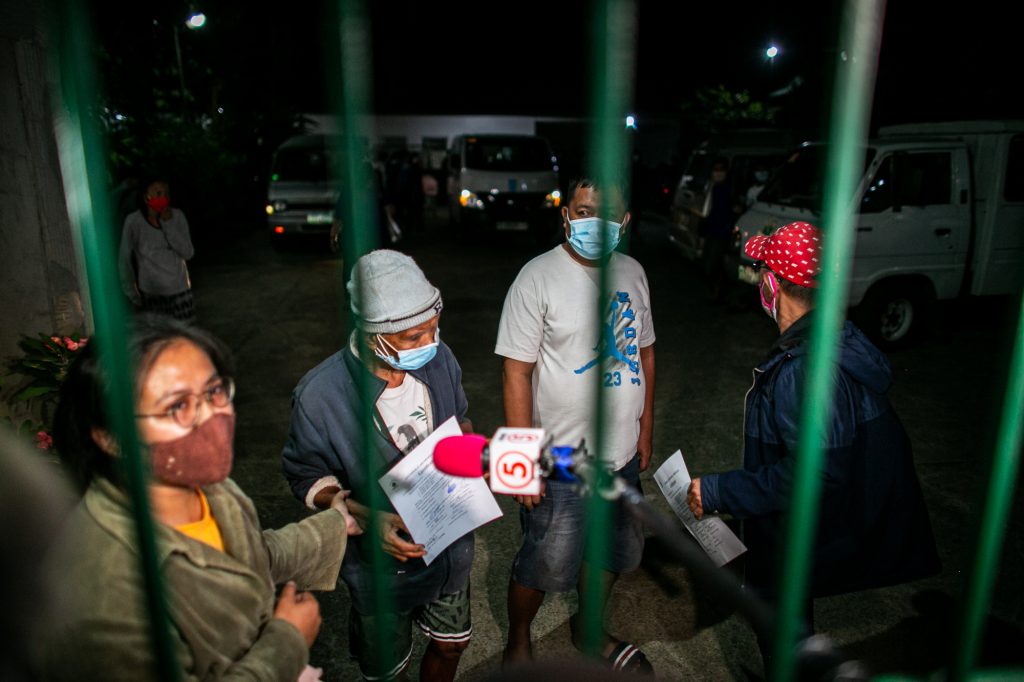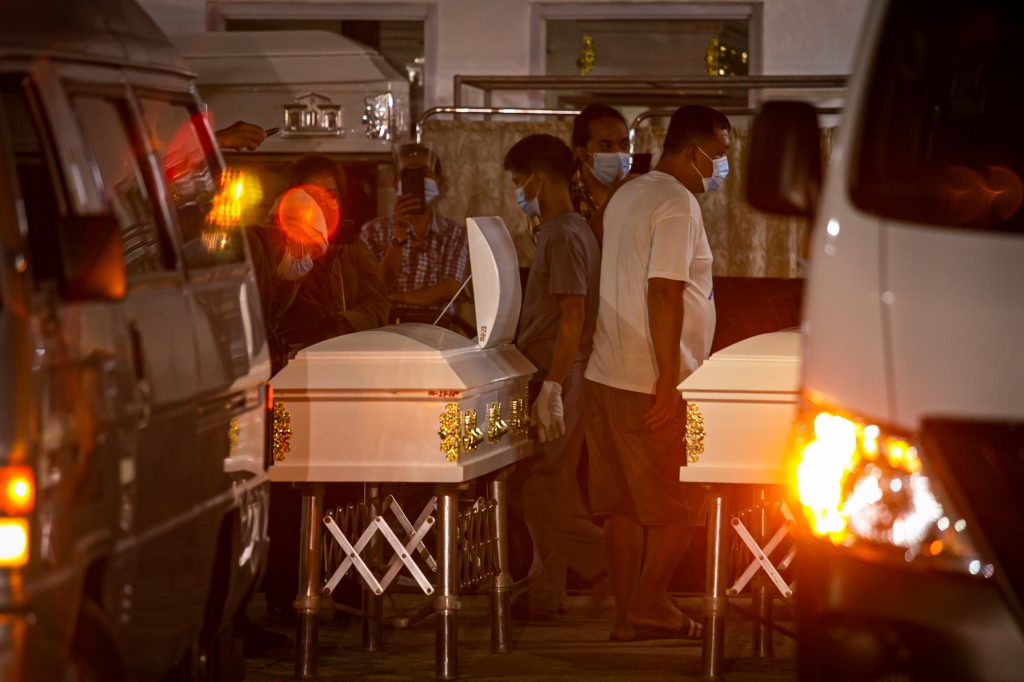
It was about noon when the news arrived.
“Kuya (elder brother) Puroy is dead,” read a text message sent to Eddieboy Jimenez, a staff member of the mission house of the Congregation of the Most Holy Redeemer in the Philippine capital.
Puroy dela Cruz, a leader of the Dumagat tribe, was among the nine people who were killed in police raids in a province just outside Metro Manila on March 7.
He was one of the leaders of the ecumenical group Samahan ni Maria (Society of Mary), which was established by Redemptorist missionaries in the village of Sta. Ines in Tanay town, Rizal province.
“We have been working with Kuya Puroy for years now,” said Jimenez. “He was active in the group and facilitated several livelihood programs for the community.”
Jimenez said the slain Dumagat leader was not a member of a communist rebel group or a supporter of any armed group.
Authorities have linked Dela Cruz to the band of communist rebels operating in the area.
“Of course we would know if he is or he is not. We are sure he is not an armed rebel,” said Jimenez.
“We are sure that Kuya Puroy was a dedicated Dumagat leader who opposed the construction of a mega-dam inside the tribe’s ancestral lands,” he added.
Witnesses said Dela Cruz and his family were sleeping in their hut when the police arrived to serve a search warrant for a gun and an explosive device about four o’clock in the morning.
Minda, Dela Cruz’s wife, said the armed men forced her and the children out of the house. She heard gunshots and later saw her bloodied husband on the floor.

Several meters away from Dela Cruz’s place was his cousin, Randy dela Cruz, who was also sleeping with his family. Another group of “armed men” arrived and entered his hut.
The policemen ordered Randy’s wife, Violy, to go outside and “move some 50 meters away” from the house. Moments later, Violy, also, heard gunshots.
It was past nine o’clock in the morning when the armed men took the dead bodies and loaded it on a white helicopter with “Police” markings.
The Philippine National Police reported that its operatives recovered one .45 caliber pistol, an M16 rifle, and a rocket-propelled grenade from the Dela Cruzes.
Authorities alleged that the two tribesmen “resisted arrest” and “fought back,” resulting in a gunfight.
Angelito dela Cruz, Randy’s father, and Puroy’s uncle refuted the claims that they owned guns or that they were members of the communist-led New People’s Army.
“Would anyone believe a poor man like me if I would say that my son was murdered?” said the 73-year-old Dumagat leader.
After the early morning shooting, residents of Sta. Ines packed their belongings and walked out of the village in search of “a safer place.”
A day after the incident, Angelito sought assistance from local government offices to retrieve the bodies of his son and nephew.
He also asked for temporary shelter to about 70 people who left the village. “It was urgent, but we got little response from them,” he said.
Angelito decided to seek the help of the Redemptorist missionaries to recover the remains of the slain tribesmen.
Jimenez said the congregation’s mission team was barred to visit the village after the incident “but we were able to assist them in retrieving the bodies.”
The remains of Randy and Puroy were retrieved on March 11 and were brought back to the village the next day.
“They will be buried in the land where they lived and in the land they died for,” said Angelito.

Over the years, the people of Sta. Ines have been asserting for their right over the land where a mega-dam is being constructed.
The Kaliwa Dam Project is an integrated dam system involving the construction of several dams in the provinces of Rizal and Quezon.
The project, which will reportedly displace at least 15,000 tribal people, got its funding from the US$248 million loan from China.
It is one of the 75 flagship infrastructure projects under the “Build, Build, Build” program of the government.
Pastor Irma Balaba of the National Council of Churches in the Philippines said the killing of Randy and Puroy was “an attempt to silence the indigenous people in their fight against the project.”
“The motive is clear,” she said. “The cousins were targeted because they were active in opposing the dam project.”
The Protestant pastor called on Church organizations to “continue the mission of walking and living with the Dumagat people and the protection of the environment.”
“Churches and believers of Christ must stand for and with the indigenous people against these bloody attacks,” she said.
In 2018, 51 Catholic bishops signed a pastoral letter issued by Bishop Bernardino Cortez of Infanta opposing the dam project.
The letter called on the government to look for alternative water sources that would address the water supply problem affecting the capital Manila.
Source: Licas Philippines
0 Comments